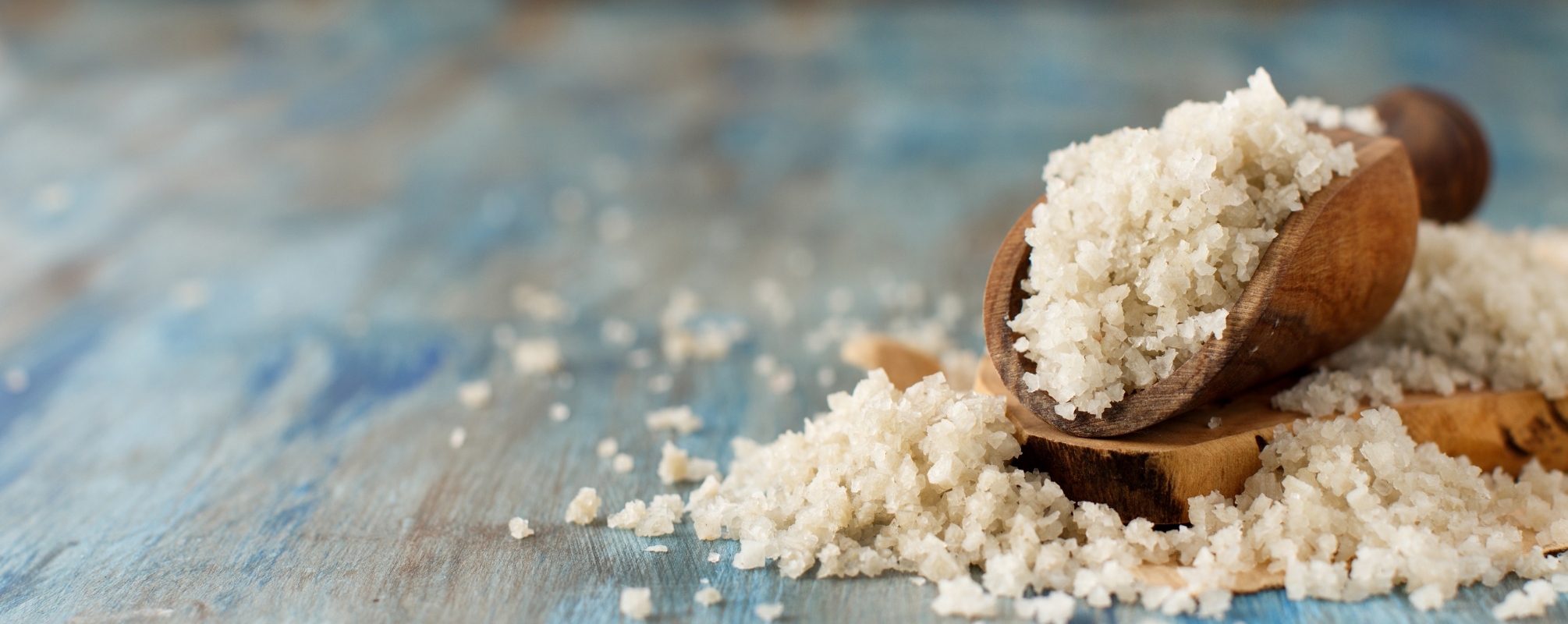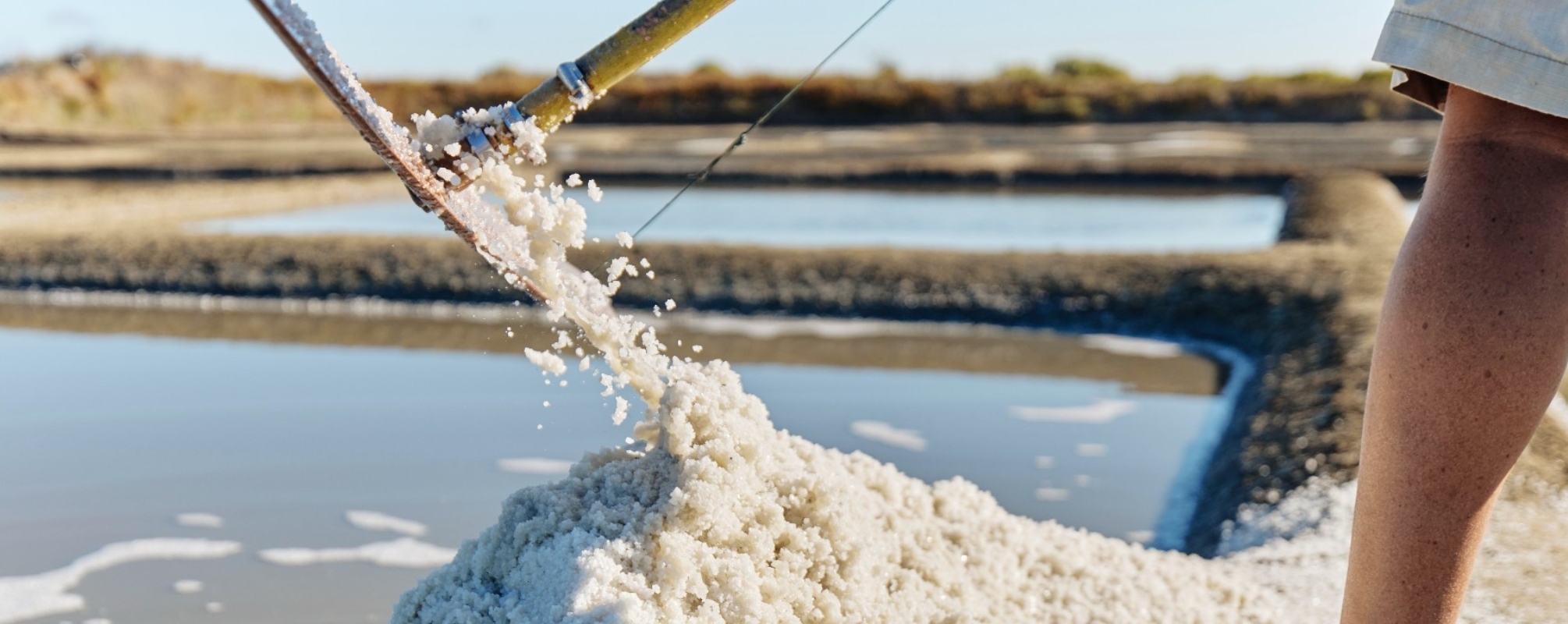Celtic Sea Salt has long been celebrated for its rich mineral content, natural harvesting process, and distinctive flavour. But with growing awareness around food safety and contaminants, concerns about heavy metals in Celtic Sea Salt have risen.
At Honest to Goodness, we take the issue of food safety seriously. We understand that when you’re choosing foods for your family or customers, you need to be confident that what you’re buying is safe, tested, and meets the highest standards. That’s why we go the extra mile to ensure our Celtic Sea Salt is rigorously tested for heavy metals and complies with all relevant food safety regulations.
WHAT ARE HEAVY METALS, AND WHY DO THEY MATTER?

Heavy metals such as lead, cadmium, mercury and arsenic are naturally occurring elements found in the environment - from the earth’s crust to our oceans. While trace levels of these substances can end up in many natural products, food safety standards exist to ensure they remain well below harmful levels.
Because salt is harvested from seawater, it’s understandable that questions may arise about the presence of such substances. The key factor is how much is present—and that’s where testing, transparency and compliance come in.
WHY DO HEAVY METALS APPEAR IN NATURAL FOODS?

Because Celtic Sea Salt is harvested from natural ocean brine, it’s exposed to the same environmental factors as all other marine products. As ocean water evaporates to form salt, any naturally occurring heavy metals in the water can become more concentrated in the resulting salt crystals. Unlike conventional table salts, which are highly refined and may undergo processing steps to remove certain impurities, Celtic Sea Salt is unprocessed and retains its natural trace minerals, a quality many people value for its purity and nutritional benefits. But rest assured: the natural origin of a food does not mean it’s unsafe. In fact, regulatory limits are put in place precisely to ensure that even if trace amounts of heavy metals are present, they remain at levels that are considered safe for regular consumption.
OUR APPROACH TO HEAVY METAL TESTING
We test every lot of our Celtic Sea Salt for heavy metals. Testing is conducted by an independent, accredited laboratory that specialises in this type of analysis. These tests screen for the following heavy metals:
- Lead
- Arsenic (Total)
- Cadmium
- Mercury
This testing is part of our standard quality control process to ensure every product meets the required thresholds set by the Australia New Zealand Food Standards Code (FSANZ).
WHAT ARE THE LEGAL LIMITS FOR HEAVY METALS IN SALT?
The FSANZ Code sets the following maximum levels for heavy metals in salt:
- Lead = 2 mg/kg
- Arsenic (Total) = 0.5 mg/kg
- Cadmium = 0.5 mg/kg
- Mercury = 0.1 mg/kg
We’re proud to confirm that our Celtic Sea Salts consistently test well below these limits. That means you can enjoy the natural flavour and trace minerals of this ancient salt—without the worry.
TRANSPARENCY & TRUST
We understand that our customers value transparency. That’s why we’re always happy to answer questions and share the steps we take behind the scenes to ensure product integrity.
If you’re interested in the official food safety guidelines, you can explore them here:
- Australia New Zealand Food Standards Code – Schedule 19 – Maximum levels of contaminants and natural toxicants
- FSANZ: Arsenic in Food



![Introducing Yarra Valley Tea [Supplier Spotlight] Introducing Yarra Valley Tea [Supplier Spotlight]](https://cdn11.bigcommerce.com/s-dis4vxtxtc/images/stencil/160w/uploaded_images/blog-thumbnail-yarra-valley.jpg)
![Introducing Matcha Maiden [Supplier Spotlight] Introducing Matcha Maiden [Supplier Spotlight]](https://cdn11.bigcommerce.com/s-dis4vxtxtc/images/stencil/160w/uploaded_images/blog-thumb-matcha-maiden.jpg)

![Introducing Fangst [Supplier Spotlight] Introducing Fangst [Supplier Spotlight]](https://cdn11.bigcommerce.com/s-dis4vxtxtc/images/stencil/160w/uploaded_images/blog-thumbnail-fangst.jpg)